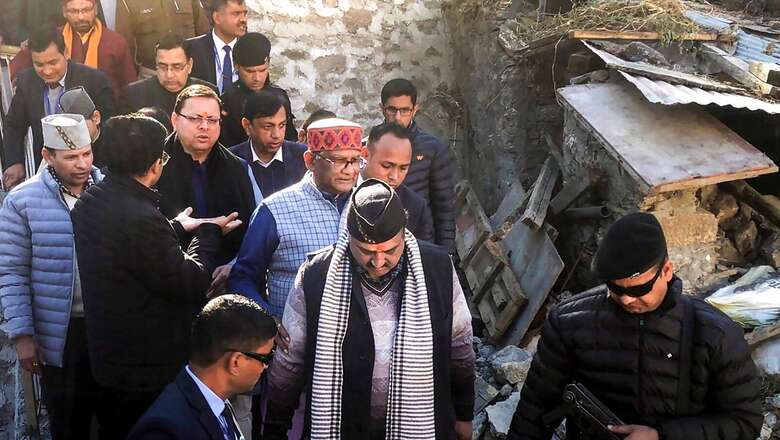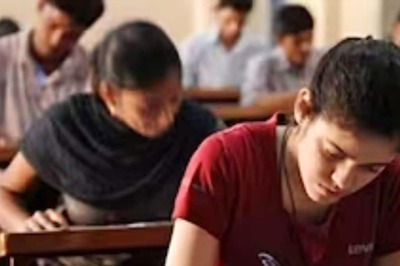
views
A large chunk of Joshimath town is slowly sinking and the problem has been aggravated since heavy rains in October 2021, the Pushkar Dhami government in Uttarakhand had conceded on December 31, 2022 in a bid document, close on the heels of the crisis hitting national headlines.
News18 has accessed a 113-page bid document floated by the state government on December 31 which had asked for a comprehensive geological and geotechnical investigation and preparation of a drainage plan for “sustainable safety” of the Joshimath town.
The tender was to be opened on January 20, the date of which has been advanced to January 13 now given that the matter has reached the level of the Prime Minister’s Office (PMO). News18 reported on January 9 how the lack of a drainage system in Joshimath is a major reason for the crisis.
Document Warns of ‘High Risk’
“Local residents of Joshimath complained that large chunk of the town is slowly sinking and houses and roads were developing cracks and the problem was aggravated after heavy rains in October 2021,” the document said.
It added that a team of experts from Uttarakhand State Disaster Management Authority, Central Building Research Institute (Roorkee), IIT-Roorkee, Geological Survey of India and the Wadia Institute of Himalayan Geology had since carried out field work around Joshimath in August 2022.
“The said team reported: Evidence of ground subsidence has been observed in the downhill slope from Joshimath along the road at many places. Sinking of roads and extensive cracks in houses were also found along Joshimath-Auli road. The expert panel found that the damage wasn’t restricted to floors or walls of houses, it extended to ceilings, ran through houses, including courtyards and outdoor areas, and even dislocated beams, resulting in lopsided structures,” the document said.
It further said that the panel experts suggested managing the seepage and pore pressure of water and improving drainage. “As primary measures, it has recommended regulated development and constant monitoring of the affected areas. The slopes around the town should be subjected to regular instrumental monitoring to ascertain magnitude of the problem and clearly demarcate population, infrastructure and other elements exposed to high risk.”
Alarm Over Construction
The document also red-flagged increased construction activities to be the cause of ground subsidence. “Above riverbed on the slope housing Joshimath town, subsurface seepage erosions by natural drainage, occasional heavy precipitation, periodic seismic activities and the increased construction activities appear to be main causes of ground subsidence. Over the years, the burden of this fragile mountain slope appears to have increased beyond the sustaining capacity of the soil on which it rests,” the document warned.
It said rainwater and household waste water flowing below the ground leads to high pore-pressure conditions in the soil, reducing its strength and resulting in instability.
Find Reasons
The document wanted a Detailed Project Report (DPR) to be prepared to find out all possible reasons for subsidence happening around and in Joshimath and suggest appropriate short term and permanent remedial measures and stage-wise mitigation works in order to check and minimize further subsidence.
The government also wanted detailed drainage studies of storm water and sewage water of Joshimath, preparation of a proper drainage plan and a topographical survey.
The state government also wanted to carry out detailed geology of the Joshimath town and bearing capacity and soil properties of the soil of Joshimath town, installation of six piezometers to study groundwater fluctuations as well as an environmental and social impact assessment.
Much of this job will now be done by an inter-disciplinary team of central experts from seven central institutions as directed by the PMO while the Uttarakhand government has been directed to immediately state work on a sustainable drainage plan for Joshimath town.
Read all the Latest India News here



















Comments
0 comment